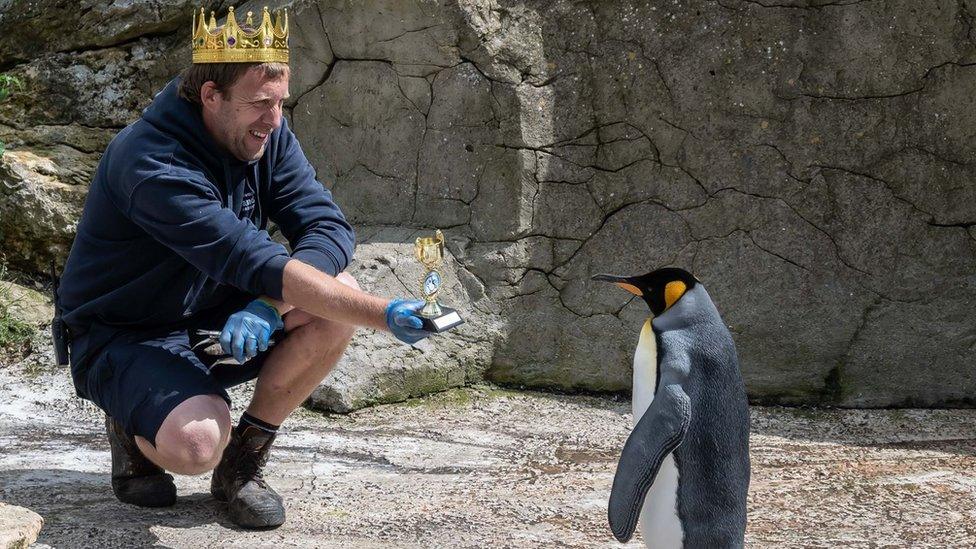Spike, the Cotswold penguin, helps university mobility study
- Published
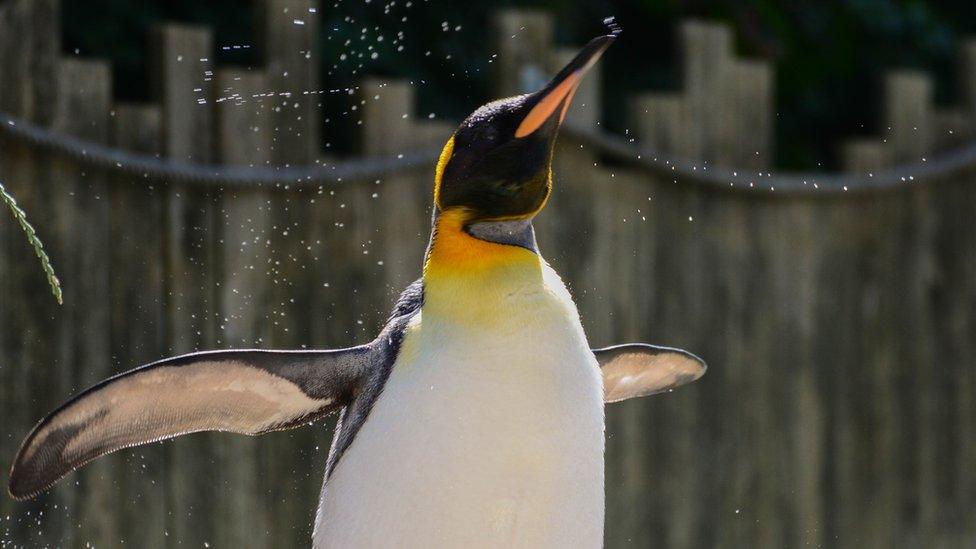
Researchers hope the study will help them create new mobility aids for humans
A penguin officially crowned "the world's favourite" is helping with international research.
Spike, a King Penguin from Birdland in Gloucestershire, is helping with a study analysing how penguins adapt to moving on different slippery surfaces.
Head keeper Alistair Keen said: "The goal is to come up with some mobility aids that can be used by humans.
"What they're looking at is how penguins transfer their weight."
The penguin kinetics study features researchers from New York University and the Royal Veterinary College, University of London.
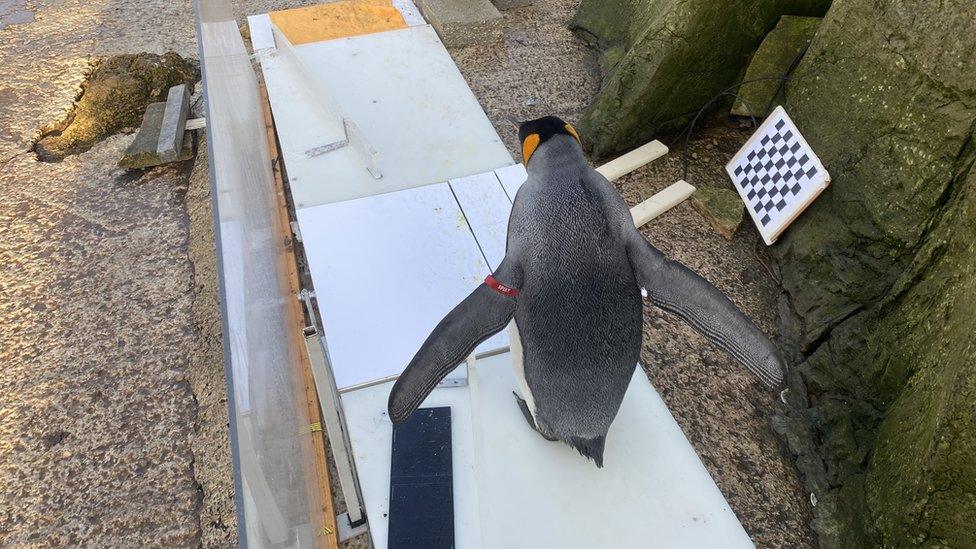
The penguins were encouraged to walk across a pressure plated surface
Researchers encouraged Spike and two other penguins to waddle along a pressure plated surface.
They then assessed how much weight they are putting down with every step and how that changes when the surface gets more slippery.
Mr Keen added: "Spike hatched at Birdland in 2007. His parents abandoned the egg during the incubation period.
"Parents are supposed to share incubation duties, but abandonment is not uncommon in the wild."
King penguins stand at about 2.5 ft (76 cm) and weigh around 12 kg (26 lbs) when fully grown.
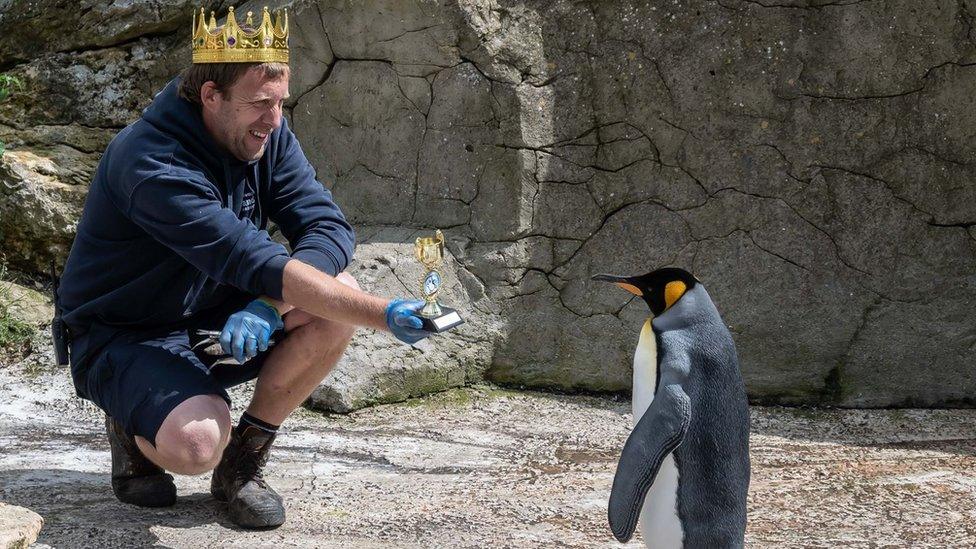
Head keeper Alistair Keen handing Spike the penguin his trophy
According to Mr Keen, Spike was the smallest recorded King Penguin to ever hatch, weighing just 170g (5.9 oz).
Nonetheless, Spike overcame this adversity to be crowned world's most popular penguin in an online poll.
The famous penguin has now amassed a cult of 15,000 Facebook followers - more than Mayor of Gloucester Greg Verga and Mayor of Bristol Marvin Rees combined.
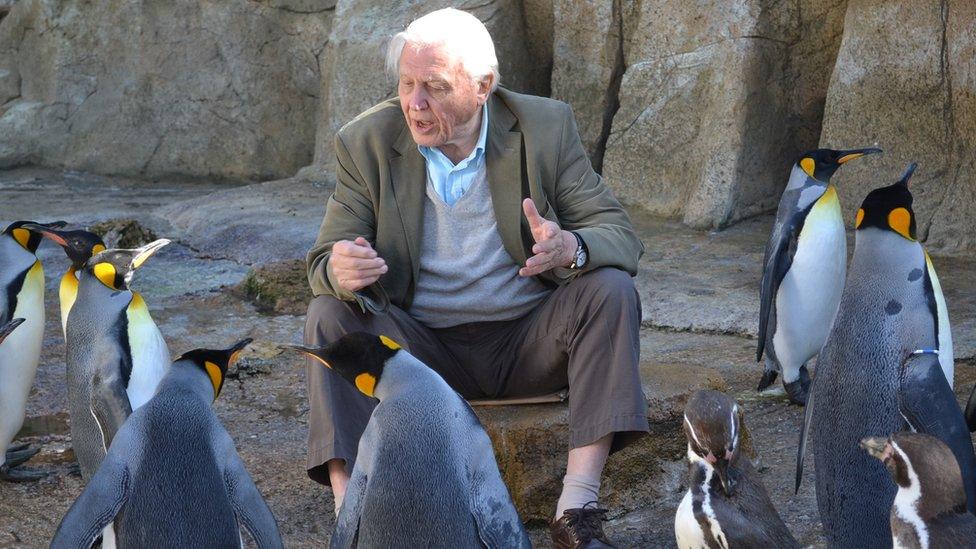
Sir David Attenborough met Spike (front left) at Birdland
Spike has also appeared in a Sir David Attenborough documentary called Natural Curiosities, and had his own segment on the programme Penguins Make You Laugh Out Loud.
Birdland, in Bourton-on-the-Water in the Cotswolds, is the only place in England home to King Penguins.
The sanctuary houses the oldest living King Penguin, at 38-years-old. The species typically lives for 15 to 18 years when in its wild habitat in the South Atlantic.

Follow BBC West on Facebook, external, X, external and Instagram, external. Send your story ideas to: bristol@bbc.co.uk, external
- Published5 December 2023
- Published22 April 2023
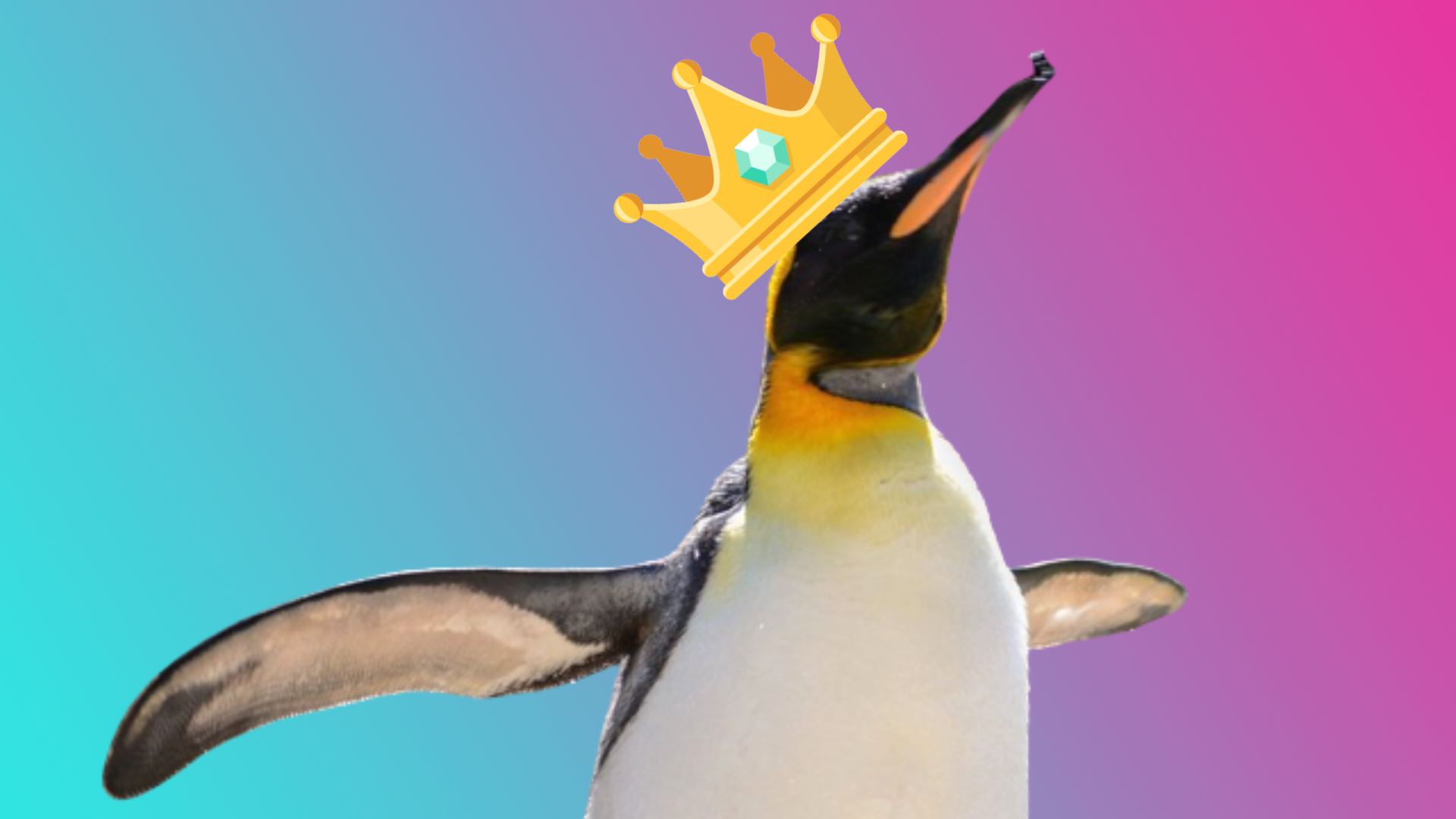
- Published3 June 2023
